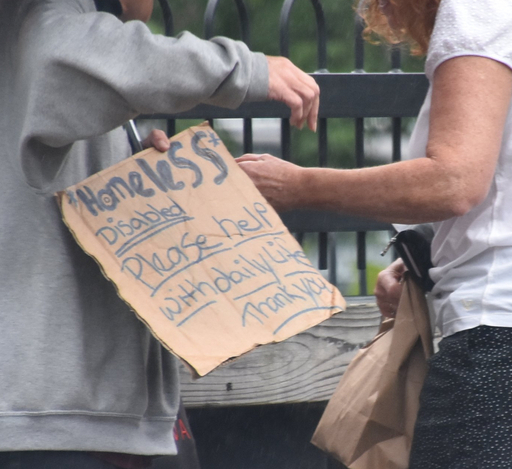BRATTLEBORO — When I saw the headline to Selectboard candidate Peter “Fish” Case's letter, I felt a spark of hope: “People are hurting right now,” the header read, “and it's possible to stop it.”
Could he be referring to the fact that now, in the dead of winter, the homeless shelters are full and our neighbors are left shivering on the streets and sleeping in tents?
Or perhaps he's addressing the fact that we have lost so many of our beloved friends and family members to the opioid crisis, lacking proper addiction support?
Were we finally about to see a candidate running on a platform of protecting and caring for the most vulnerable members of our community? People are suffering. It's true.
However, when I read the letter, my heart sank. What I found instead was an insidious, cleverly veiled series of major red flags.
“I have spoken with a dozen retailers who have all been told by their customers that they don't feel safe coming downtown,” wrote Case. “I've spoken with hundreds of citizens who are tired of being aggressed when they get out of their cars. All this tells me is that it's time to take a look at our stance on loitering again and make some changes.”
If you aren't familiar with the rhetoric, you might miss it. The scenario he describes sounds - well, scary. And who is this mysterious aggressor Case alludes to but doesn't name?
I've seen this language before - and without fail, talk like this is always referring to panhandlers. Make no mistake: What Case is saying here is that he's running, at least in part, on a platform dedicated to banishing people experiencing homelessness from downtown Brattleboro.
God forbid we, a supposedly progressive community, be forced to witness poverty.
God forbid a person be permitted to ask their community for help - often by standing out in the snow, the rain, and the cold for hours on end, sign in hand.
People are being aggressed when they get out of their cars? Listen. I'm a 5'2”, 130-pound woman. I have lived and worked in Brattleboro my entire life. I have never once felt threatened or unsafe downtown.
But yes, sometimes folks will ask me for money. If I have time, I'll stop to chat. Some are kind. Some are not. Some visibly struggle with mental illness and addiction. Some don't.
The same is true for any of us.
What these people all have in common, though, is that they are residents of this town as solidly as I am, with just as much a right to exist in the public sphere.
* * *
Beyond the ethics of it all, however, is a legal issue: According to the American Civil Liberties Union, “the First Amendment covers 'charitable appeals for funds.' Because of this, panhandling, solicitation, or begging are protected speech under the First Amendment.” Courts up to and including the Supreme Court have ruled decisively.
So regardless of your feelings around panhandling, to place restrictions on it is a direct violation of the First Amendment. And to do so under the guise of a “loitering” measure is nothing short of seeking a loophole to our most vital right as citizens: freedom of speech.
* * *
I'll admit - I have felt uncomfortable seeing panhandlers in town. It's a discomfort I'm not proud of-rooted in guilt, in shame, and in the searing squeamishness of knowing I'm in a more privileged situation and am not helping as much as I could be.
When we confront these feelings, we have to ask ourselves: Are we feeling “unsafe” - as if we are genuinely in harm's way? Or are we feeling “uncomfortable” - having to bear witness to suffering?
The greatest irony in Case's letter is found in the following statement: “Those changes may not be popular,” he writes, in regards to tightening “loitering” laws, “but they will return commerce to downtown Brattleboro and make it safe and inviting for all.”
Fish, why do I get the feeling that your definition of “all” excludes the most vulnerable members of our community?
